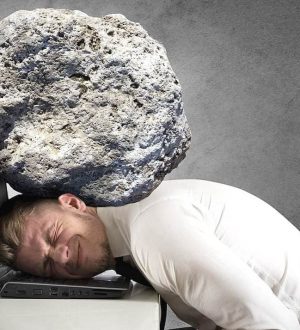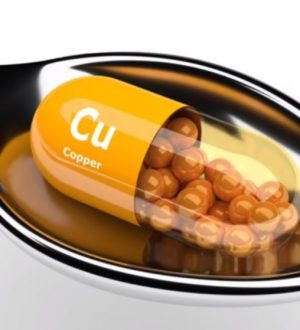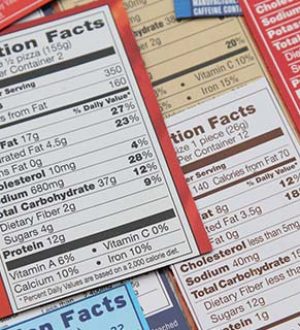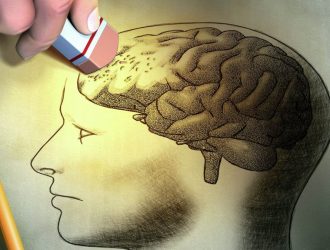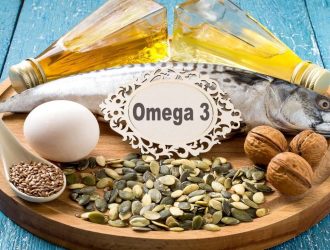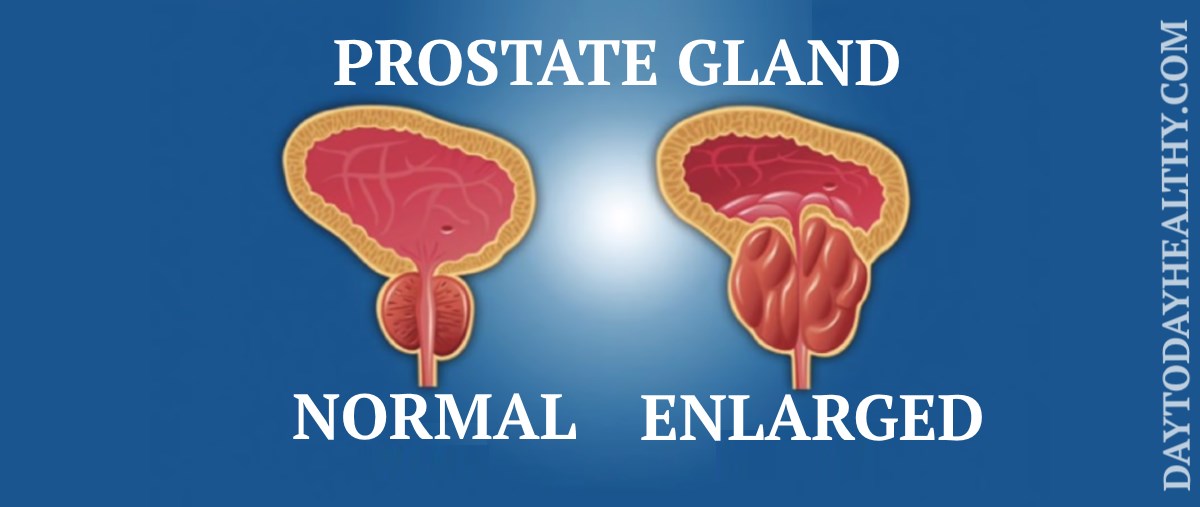
It is important to consider the topic of prostate issues and the most important nutrient to maintain prostate health. This topic was inspired by a great book called «Soil, Grass & Cancer» which is filled with useful nutritional information.
Contents
What is the prostate?
The first thing to talk about is a big confusion of what the prostate gland is. Very few people know what it does; all they know is that as you get older, it enlarges, and then it affects your urination, stream flow, libido, retention of urine and a bladder, backup of urine in the kidney. 50% of men over the age of 60 start to get an enlargement of the prostate gland. So, it is important to understand a little bit about this theme in identifying why this occurs, because there is a high risk of getting prostate cancer. However, just because the prostate enlarges does not mean that it is cancer.
So, speaking of the location of the prostate, there is a little bone in the front part of your pelvis called the symphysis pubis, and the prostate is right behind that bone. The prostate is also just underneath the bladder; there is a little tube that comes down from the bladder that this prostate wraps around, and the size of the prostate would be about equivalent to a walnut size. Thus, it is not quite big, but it can get quite big. The rectum is located right behind the prostate, so that is where it is located.
What does the prostate do?
The prostate is about 70% of gland and 30% of muscle. So it does two things:
- It helps you secrete a certain fluid.
- It also acts as a pump during ejaculation.
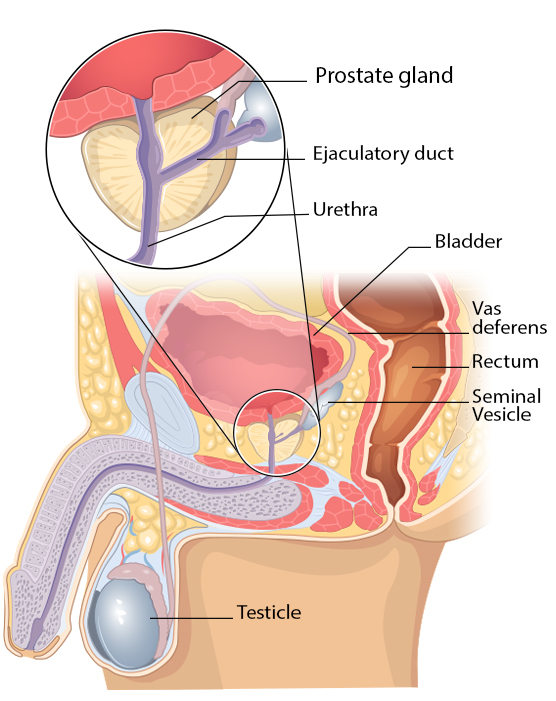
Human heart anatomy
Thus, it helps to push this fluid through the tube, which is the same tube is where your urine goes through. Then, out of the body, sperm is created in the testicles. It takes roughly about 60 to 70 days for sperm to develop, so the sperm travels through this little tube up into the area of the prostate where there are additional glands that produce fluid. The fluids of the prostate gland all mix together into what is called semen.
The purpose of semen is to fertilize sperm, and the sperm is basically just the genetics from a male body, which is then going to join with the genetics of the ovary to form a human body. The sperm needs to be fed with fructose from the semen. Certain enzymes must help to penetrate into the uterus lining because there is mucus there, and a lot of other factors to keep this sperm fertile. The sperm outside the body can last roughly about 5 days.
On the other hand, in the female, there is this egg which is inactive, and it becomes active once the sperm penetrates. So, that is a summary of what the prostate does in relationship to these other factors.
The relationship between zinc and the prostate
What is interesting about the prostate gland in relationship to nutrition is that it is the gland that has the highest concentration of zinc. The prostate has a 100 times higher concentration of zinc than in the blood in general, because if you test your blood and it is normal with zinc, it might not tell you what is going on inside the prostate gland.
So, in the book mentioned above, there are a couple of little interesting points.
It is talking about the relationship between a zinc deficiency and what happens with the prostate gland (it actually enlarges). There is the study done, and you can learn from it that a normal level of zinc in prostate it’s 744 mcg, and then it is contrasted with a mild hypertrophy or enlarged prostate gland that had a lesser amount of zinc, which is 486 mcg. Then the researchers tested people with chronic prostatitis and that was at point of 470 mcg. After that the book talks about prostate and the cancer related to zinc. Apparently, that level was actually, on average, 273 mcg of zinc.
So, there is a relationship between a zinc deficiency and inflammation in the prostate gland, enlargement of the prostate gland, and susceptibility to getting prostate cancer.
The other point is that there is a very powerful form of testosterone called DHT; testosterone can be converted to DHT with a certain enzyme, which is called 5-alpha Reductase, and there are certain medications that inhibit that enzyme to help reduce DHT for baldness, for instance, prostate hypertrophy, erectile dysfunction, because too much of that hormone GHT can create bad effects. However, what is interesting is that zinc is a natural inhibitor of that enzyme.
The most important nutrient for the prostate
People with low testosterone (learn more about The Number 1 Missing Factor with Low Testosterone) are usually zinc-deficient, so zinc is the most important trace mineral to make sure that the level of testosterone is high, that the fertility of sperm is there, and that the size of the prostate is maintained.
What causes a zinc deficiency?
For example, someone does not consume enough red meat. Now think about this: what is the big push now, especially with men as they get over the age of 50? The answer is public opinion («Do not consume red meat, red meat is bad»). But exactly the quality of red meat matters. People tell others to get off red meat, to lower somebody`s cholesterol foods, and they just lump this meat into one group, and do not differentiate between processed meats and grass-fed organic one, when sometimes this food can build block of testosterone.
And what do they tell others to eat? To eat something plant-based, you have to eat enough whole grains, which are loaded with phytic acid—probably the biggest thing that can block someone’s ability to absorb zinc. As a fact, 2 billion people on this planet are deficient in zinc, probably, because they are consuming too much cereal and too many grains.
The other interesting thing about aging is that when you age, you lose the concentration of stomach acids, which are very important in absorbing zinc. So, if someone has low stomach acids, he would not be able to absorb zinc.
It is important to mention:
- if you are taking an antacid, you are going to be deficient in zinc.
- if you are taking a diuretic, that medication will deplete you of zinc.
- if you are taking statins, you will have significant zinc deficiencies.
- alcohol is another common thing that will cause a zinc deficiency (learn more about How to Stop Drinking Alcohol and Save Your Liver).
- consuming a lot of sugar will cause a zinc deficiency.
- eating frequent meals like in snacking lid at night, while you are watching the ТV – all of this creates insulin resistance, which can also deplete zinc.
What is the best source of zinc?
One of the best sources of zinc is shellfish, as in oysters, but the second best source is red meat. Also the best sources of zinc and other minerals as copper (learn more about the importance of copper), magnesium (learn more about benefist of magnesium), potassium (learn more about Unexpected and Amazing benefits of potassium) etc are eggs. However, taking zinc as an additional medicine is not going to guarantee any type of cure for enlarged prostate, lower testosterone, reducing your risk of prostate cancer or anything related to any medical condition because a lot of other factors are involved.

